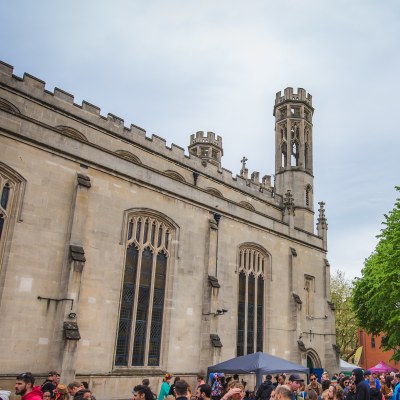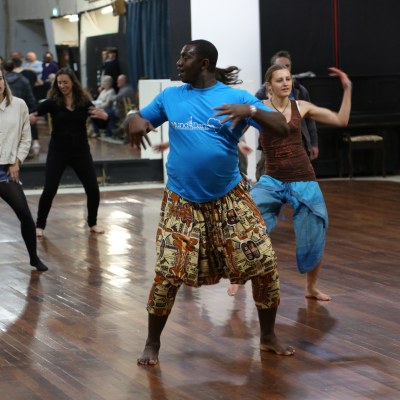She Called Me Mother, by Michelle Inniss
Review from Theatre Bristol Writers in Residence: Bella Fortune
She Called Me Mother is a story of distance. Distance caused by travelling from one continent to another. The distance that secrets create. Distance made by time. Distance between generations. Distance as enforced protection when love is lost to broken trust.
Evangeline is waiting, waiting for a woman, waiting for her black swan. Meanwhile she observes passers by. From her spot at London Bridge station she is only really visible to those who choose to see her. She is asking for money, an interaction and kindness in exchange for a magazine. Evangeline recounts moments in her long life that have led her to this place. Her past is set in Trinidad where she held many roles; she was a wife and, most importantly to the tale, she was a mother. She speaks out to us, explaining her history while the figure of a younger woman casually moves around in background like the ghost of a life lost. The figure is the thought at the front of Evangeline's mind, loitering in her present life, unable or unwilling to be shaken off.
When we finally meet this figure we are not surprised to learn that she is Evangeline's daughter Shirley. Through the Shirley we hear a different side to the tale. The gulf of experience between the two women is evident in their accents, use of language and points of view. Deeper secrets are revealed; alcoholism, abuse, protection and neglect. Could more have been done to prevent a lifetime's worth of damage? Once these buried pains are brought to the surface can a broken relationship be fixed?
When the two women come together their focus on us as an audience ceases. Suddenly they occupy the same space, the same place in time and we, the audience, are redundant. We are no longer listening to a story, we are now witnessing a coming together of a bygone relationship. There is something inharmonious about this jump of focus which is followed by an overly drawn out scene of attempted reconciliation that finds the actors vying for emotional one upmanship. However, She Called Me Mother, overall, feels like something of a breakthrough. As a debut play it more than succeeds in giving voice to traumatic experiences in a palatable fashion. Respect and realism are prioritised where the writing and performances could have easily swayed to sentimentality and the question of blame and accepting accountability is, authentically, never fully resolved. There is no fairy tale ending, no wave of a magic wand. But there is life and, for Shirley at least, the chance to live it.








